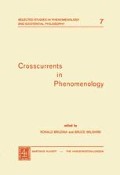Abstract
The recent cultural background of the problem of psychopathology and evil is what Phillip Rieff calls the triumph of the therapeutic.1 His thesis is that modern politics, psychology, and religion are now pervaded with a dominant cultural type, psychological man, whose basic posture is the pursuit of well-being without considerations of good and evil. The triumph of the therapeutic rests on a conflation of various forms or dimensions of human misery. Misery as onto-logical insecurity and anxiety in the face of the threatening contingencies of life, misery in the form of mental disorder or psycho-pathology, and misery in the form of human evil all turn out to be one thing. What follows represents an attempt at a theory of differentiation which argues that the psychopathological and human evil are different kinds of responses to the problematic and threat which is constitutive of life itself, and they are marked by quite different dynamics. Obviously, a theory of differentiation requires both an eidetics of the sphere of the psychopathological as well as of human evil. This paper is little more than a summary sketch, an outline, in which such an eidetics is attempted.2 At the same time it should offer sufficient detail to make the theory plausible.
Access this chapter
Tax calculation will be finalised at checkout
Purchases are for personal use only
Preview
Unable to display preview. Download preview PDF.
Reference
Phillip Rieff, The Triumph of the Therapeutic: Uses of Faith after Freud (New York: Harper & Row, 1966).
A book-length version of the argument has just been completed and submitted for publication under the tentative title, Madness and Evil: an Essay on the Human Problem.
Cf. this term to dysfunction, dyscontrol, and dysorganization in Menninger, Mayman and Pruyser, The Vital Balance (New York: the Viking Press, 1967), p. 157.
In the literature of phenomenological and existential anthropology terms such as pour-soi, Dasein, existence, person and personal being, and being-in-the-world function as inclusive or global terms for the “system” to which I am now referring. Distinctive elements of that system, that is, human being-in-the-world, are lived-spaced, lived-time, embodiment, intersubjectivity. For an excellent comprehensive treatment of these themes which makes full use of this tradition from Husserl to the present, see Calvin O. Schrag, Experience and Being: Prolegomena to a Future Ontology (Evanston: Northwestern University Press, 1969), especially Parts I and II.
An example of an approach to the problem of identifying the actual effect the psychopathological distortion has on the human being is Eugene Minkowski’s Lived Time: Phenomenological and Psychopathological Studies (Evanston: Northwestern University Press, 1970). While he does not use the term, worldly apriori, it could well be used to designate the space-time structure which he describes.
Erich Fromm, The Anatomy of Human Destructiveness (New York: Rinehart and Winston, 1973), Chaps. 9–17.
Editor information
Editors and Affiliations
Rights and permissions
Copyright information
© 1978 Martinus Nijhoff, The Hague, Netherlands
About this chapter
Cite this chapter
Farley, E. (1978). Psychopathology and Human Evil: Toward a Theory of Differentiation. In: Bruzina, R., Wilshire, B. (eds) Crosscurrents in Phenomenology. Selected Studies in Phenomenology and Existential Philosophy, vol 7. Springer, Dordrecht. https://doi.org/10.1007/978-94-009-9698-4_12
Download citation
DOI: https://doi.org/10.1007/978-94-009-9698-4_12
Publisher Name: Springer, Dordrecht
Print ISBN: 978-90-247-2044-6
Online ISBN: 978-94-009-9698-4
eBook Packages: Springer Book Archive

